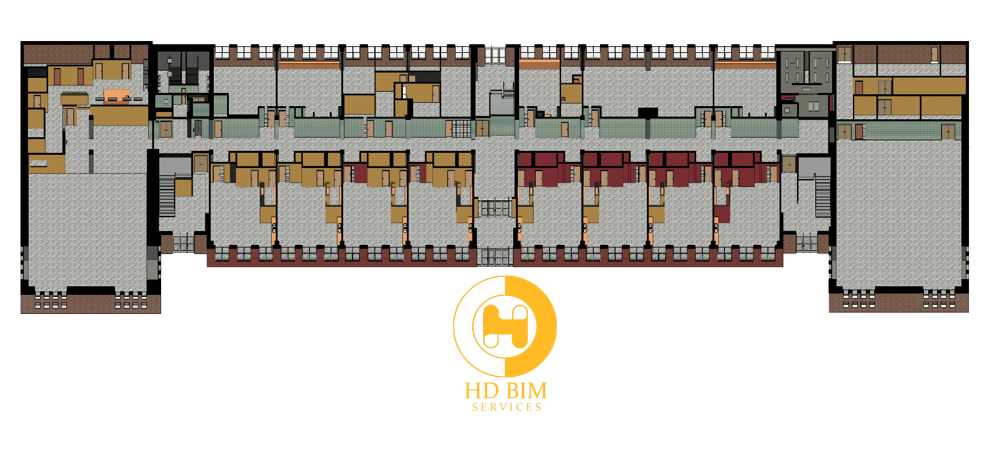
"Building Information Modeling (BIM) represents a revolutionary paradigm shift in architectural planning and design, offering a transformative approach to the way we conceive, create, and manage built environments. BIM is not merely a software tool or a collection of digital models; it is a holistic and collaborative process that integrates multidisciplinary data and information throughout the entire lifecycle of a building project. By embracing BIM, architects, engineers, and construction professionals gain the ability to optimize design decisions, enhance efficiency, minimize errors, reduce costs, and improve sustainability.
In this study, I aim to explore the multifaceted dimensions of architectural planning within the BIM framework. This research will delve into the fundamental principles of BIM, its evolution, and the critical role it plays in streamlining architectural workflows. It will investigate the impact of BIM on design creativity, accuracy, and communication among project stakeholders, emphasizing its potential to facilitate better decision-making and collaboration.
Furthermore, this research will address the challenges and barriers that architects encounter when implementing BIM in their practices and propose strategies for overcoming these hurdles. Additionally, it will evaluate the environmental and sustainable benefits of BIM in architectural planning, highlighting its potential to contribute to the development of greener and more resilient built environments.
Through a comprehensive review of literature, case studies, and hands-on exploration of BIM tools and methodologies, this study seeks to contribute valuable insights to the field of architectural planning in the context of BIM. Ultimately, the goal is to demonstrate how BIM can empower architects to create innovative, efficient, and sustainable architectural designs that meet the demands of the 21st century."